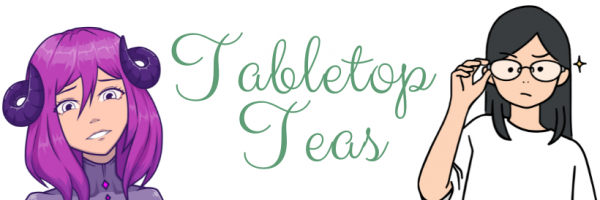I had another topic in mind for the blog today, but I’ll be honest, I forgot what it was. I had the idea in my head for three days and I remember being excited about it and thinking about exactly what to write, but the last few days my thoughts have been on the protesters….and why they protest.
So, this morning I decided to tackle this.
I am a tea business inspired by all things geek. Great, but what does that have to do with the protests? Everything.
I recently spoke in a livestream about what it is that makes us fans. Whether that fandom is ATLA, LotR, Supernatural, Star Wars, Star Trek, Marvel, Firefly, ad nauseum, we are invested in the lives of characters. Their stories resonate with us. We develop and empathy for these characters and the journeys they are on.
But, science fiction and fantasy have a long history of being mirrors held up to ourselves and our world. From Mary Shelley to Octavia Butler, from The Day the Earth Stood Still to Blade Runner, we can read and watch stories that take us through the looking glass where we can have a critical discourse about ourselves and our cultures.
That is not to say every sci-fi or fantasy story created is perfect and contains no problematic material. But, i propose that when a story or fandom DOES contain problematic elements then it is an excellent opportunity for conversation. But, that is a topic for another day.
Let’s look at what we have taken away from some popular fandoms.
Star Trek, starting with TOS, has tackled many social topics. “Let That Be Your Last Battlefield” in which there were aliens with half-black, half-white faces warring amongst each other is probably the obvious episode to mention here. In TNG, Q forces Picard to answer tough questions about humanity. And while not always doing it well, the franchise has tried to make is see certain elements of ourselves in the aliens the crew encounter. Whether it is racism, or greed, or authoritarianism, or the military industrial complex, there were opportunities for us as viewers to look at those issues in the safety of a mirror and hopefully learn something and take that something and turn it into ideals and actions.
Where Star Trek provides multiple encounters in many cases the story has one overarching BAD. In Star Wars it is Palpatine, and grossly, The Empire he created. Palpatine uses fear and deceit to solidify his power and silence those he does not like. His Empire excludes women from places of power, enslaves races, and uses threats of violence to bully planets into providing resources to the Empire. The Rebellion, in contrast, is lead by women, men, and aliens. Their fighters are women, men, and aliens. Their goal is create a peaceful unity in the galaxy and rebuild the Republic. They want to have a peace through discourse and involvement through the Republic council in direct contrast to the “law and order” the Empire tries to achieve through war and suppression.
In these epic sagas, like Star Wars and the Avengers’ fight against Thanos, we know who the bad person or bad people are and we have no qualms or reservations about referring to them as bad. We recognise their actions and motivations as bad.
Hordak has brainwashed his followers into seeing the Princesses as destructive rebels who have no respect for law and order. We know he is the bad guy and we know why he’s the bad guy.
Voldemort wanted to eradicate mud-bloods and squibs because he saw them as inferior.
Sauron, being of a “far higher order”, in his mind, than the other inhabitants of Middle Earth sought to dominate through environmental destruction and subjugation.
Similarly, the Daleks believe they are a perfect race and seek to exterminate anyone who is not them.
But, for some reason when it comes to our real world lives, we get muddled. We have a tendency to see protests, whether those trying to protect Indigenous lands, those opposing police brutality, those seeking to shrink the wealth gap, etc, as disruptive and dangerous. The protesters get called “thugs” and “agitators” and “criminals”. While those who march to uphold white supremacy are said to be “misguided” or “misunderstood” or even “very fine people”.
Why is it that we can understand that the Emporer’s use of stormtroopers against non-combative planets and against those who oppose him as inherently bad, but, we mentally try to excuse the use of police and military force against non-combative protesters and those trying to call attention to problems without our culture and government in our real world?
I understand that when you are not getting a first hand account because you are not there in person it may be difficult to sort through the stories. But, if we look to these stories we can see the actions taken and rhetoric used by those with dubious motivations. We can use that as a roadmap to clarify the political landscape.
These messages of inclusion, representation, equity, and justice have always been important to me. These ideals that I derived from my fandoms are deeply embedded in my identity and my world view and my actions stem directly from them.
I ask myself what my fandom heroes would do in this situation.
What would YOUR fandom heroes do in this situation?
